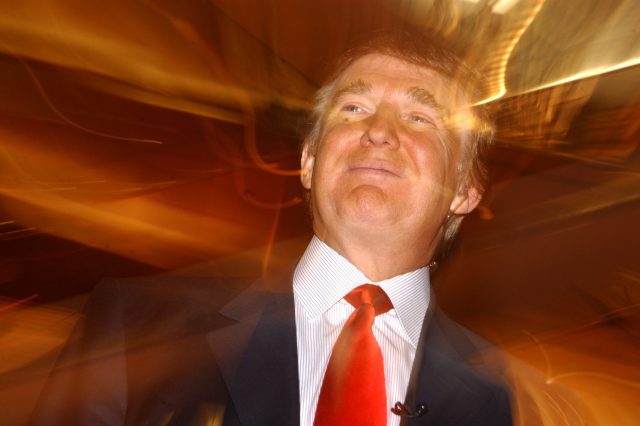Dennis van Tine/Geisler-Fotopres/DPA/PA Images

Writing in the New York Times before the shock defeat of Roy Moore, David Brooks had some harsh words for the Republican Party:
“The Republican Party I grew up with admired excellence. It admired intellectual excellence (Milton Friedman, William F. Buckley), moral excellence (John Paul II, Natan Sharansky) and excellent leaders (James Baker, Jeane Kirkpatrick). Populism abandoned all that — and had to by its very nature. Excellence is hierarchical. Excellence requires work, time, experience and talent. Populism doesn’t believe in hierarchy. Populism doesn’t demand the effort required to understand the best that has been thought and said. Populism celebrates the quick slogan, the impulsive slash, the easy ignorant assertion. Populism is blind to mastery and embraces mediocrity.”
In the circumstances, one can hardly blame Brooks for his uncharacteristic anger. Yet the implication that there is nothing more to Trumpism than populism is wrong. Believe it or not, the President has some heavy-duty intellectual backers.
Admittedly, they’re easy to miss. Trumpism is at odds with other, better-known schools of conservative thought. For instance, the Republican mainstream may have reached a political accommodation with the barbarian in their courts, but not an intellectual one. Elsewhere, the neoconservatives are wary of Trump’s isolationist tendencies; while the libertarians are diametrically opposed to his agenda on trade and immigration. The more thoughtful sections of the religious right also have good reason to doubt this most worldly of men.
But that does leave one school of thought in his corner, the so-called ‘West Coast Straussians.’
Leo Strauss was a 20th century political philosopher who fled Germany for America and taught at the University of Chicago. His conservatism – if it can be called that – stands in contrast to the conservatism of Edmund Burke. Burke emphasises the organic growth of living tradition; Strauss emphasises the purity of principle – above all, those articulated by the Founding Fathers of his adopted nation.
That’s a hugely inadequate summary, of course, but we need to get on with the story – and we do so courtesy of Jacob Heilbrunn in the New York Review of Books:
“After Strauss’s death in 1973, the battle among his disciples over his true legacy erupted. The main subject of disagreement was the nature of the American founding. The West Coasters maintained that the Founding Fathers had created a uniquely virtuous republic marked for greatness by drawing on biblical and Aristotelian principles… The result was an Athens on the Potomac… The East Coasters suggested a different and more equivocal verdict: the founding, based on liberal Lockean precepts, fostered the rise of a bustling commercial society but did no more than that.”
Until the Trumpening, the East Coasters were by far the more prominent faction – forming “much of the backbone of the neocon movement”:
“They saw, and continue to see, immigration as a national blessing and ended up embracing a missionary view of American foreign policy.”
The West Coasters, centred on the Claremont Institute in California, developed along rather different lines:
“For decades, Claremont acolytes have insisted that Washington return the country to its founding principles. In their view these principles have been debased by over a century of big government and loose constitutional interpretation… Since then, progressive thought and policies have steadily eviscerated the moral and legal foundations of America, creating a dangerous class of shiftless idlers and illegal immigrants sponging off the federal government. A muscular foreign policy, a crackdown on immigration, a rollback of the welfare state, an end to political correctness, and, above all, an appreciation of the titans who wrote the Declaration of Independence and the Constitution are essential to a fresh era of national greatness.”
Make America Great Again may be a crude distillation of Straussian thought, but the claim that Trumpism is entirely devoid intellectual content is simply incorrect.
Does this matter? One has to doubt whether the subtleties of West Coast Straussianism did much to secure Trump’s victory in the rust belt.
And yet political philosophy matters. While populist movements come and go, ideas – both good and bad – endure. The battle of ideas is never over.










Join the discussion
Join like minded readers that support our journalism by becoming a paid subscriber
To join the discussion in the comments, become a paid subscriber.
Join like minded readers that support our journalism, read unlimited articles and enjoy other subscriber-only benefits.
Subscribe